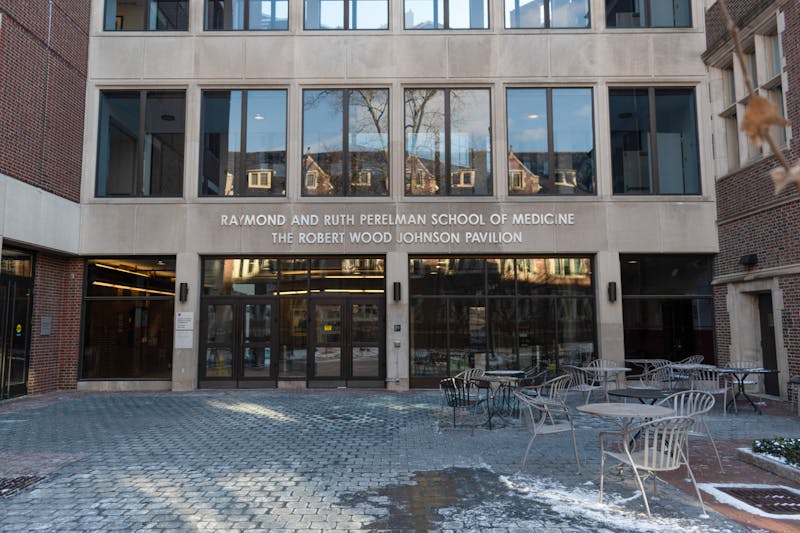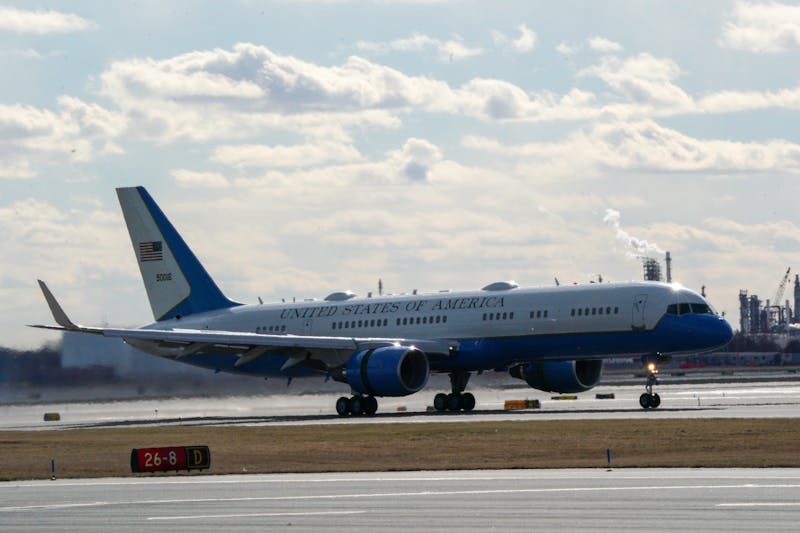
Philadelphia Magazine and the Wharton School hosted a public forum on racial integration last night -- the second panel discussion in the publication's yearlong series on race entitled "Tales of Two Cities."
The goal of the evening was to discuss the changes that the concept of integration has undergone in the past decades and whether it is still a topic worthy of discussion.
"All of us on the panel grew up with a complete optimism toward integration," Wharton professor Kenneth Shropshire said. "Integration is not the universal answer anymore. Is there something that has become the new integration, or should we refocus?"
The forum, which took place in Huntsman Hall's auditorium, was moderated by Philadelphia Magazine Editor in Chief Larry Platt and Shropshire. The panel was composed of Avalon Professor in the Humanities Michael Eric Dyson, National Constitution Center Chief Executive Officer Rick Stengel, Philadelphia NAACP President J. Whyatt Mondesire, former Dean of Temple University Law School Carl Singley, former Philadelphia Daily News journalist Linda Wright Moore and Temple University anthropologist Judith Goode.
While the first forum of the series drew about 400 people, last night's panel spoke to an audience of around 60. Platt attributed the low turnout to the scheduling of the event during the second night of Passover.
The series was created in response to the FBI investigation of Mayor John Street during his re-election campaign last year. The widely different public responses that this episode evoked led Philadelphia Magazine editors to consider the differences of thought and culture that exist among the city's ethnic groups.
The discussion started with an attempt to define what racial integration means in today's world.
"The question now is what we as members of the society think integration is, how equal access [to resources] can become a reality," Mondesire said in the forum's opening statement.
Dyson said that integration "was never about geographical proximity, but about right versus wrong."
He pointed out that integration today is a matter of class and economic status.
"The notion of racial justice is more important than integration," he said. "People are racially segregated according to their economic situation and status. ... Integration is the means, racial justice is the end."
Moore was next to speak, saying that "the quest for integration has failed for a considerable number of people."
Stengel complicated the issue by noting that the country has not yet seen the end of racial segregation.
"Every indicator in the last 15 years says that resegregation is going on in American schools at levels not seen since Brown v. Board of Education," he said.
Goode reported on the perspective on the issue held by many whites of her generation.
"My generation doesn't see the injustice embedded in the justice system, and therefore they see little use for change," she said.
She added that the discourse on race must extend to ethnic groups beyond white and black, so as to include the country's other growing minorities.
A note of dissent was introduced by Singley, who argued that integration in 1954 was precisely about sitting next to the "white kids" because that would have meant access to better resources.
"There was moral consensus for integration," he said. "When the goal of the movement [for integration] changed from 'the melting pot' to 'the mosaic,' we lost clarity of goals, of consensus and the movement."
"It's good to talk about these things," Platt said. "It shows how complex the issue is, how hard it is to get your hand around it."
The Daily Pennsylvanian is an independent, student-run newspaper. Please consider making a donation to support the coverage that shapes the University. Your generosity ensures a future of strong journalism at Penn.
DonatePlease note All comments are eligible for publication in The Daily Pennsylvanian.







